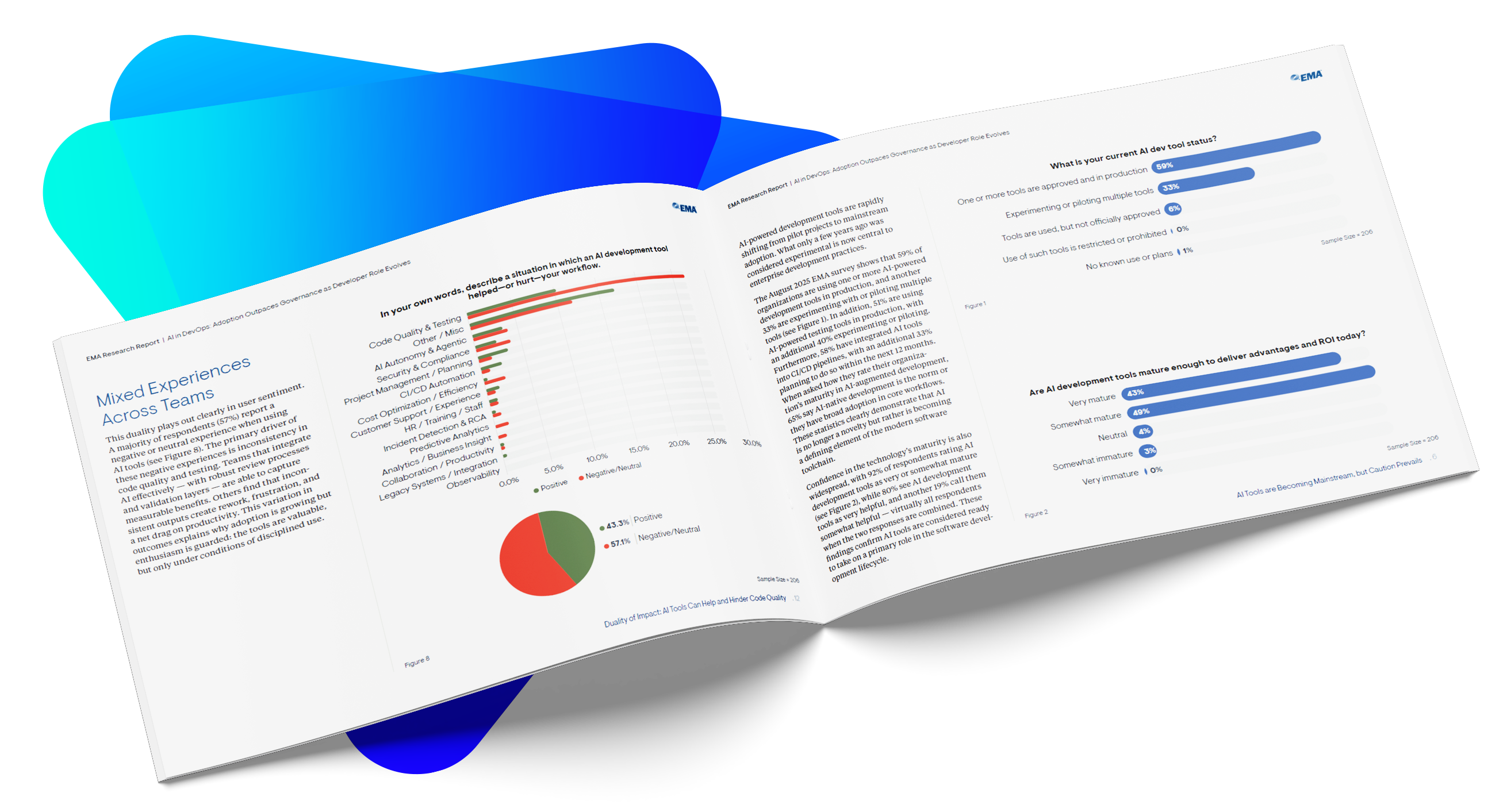Report
AI in DevOps:
Adoption Outpaces Governance and Changes the Role of the Developer
DevOps,
AI,
Security & Compliance

Survey of 206 IT Executives and Technical Leaders Reveals Critical Governance Gaps
The integration of AI into DevOps is transforming how development teams work, but many organizations struggle to implement proper governance. This research study by Enterprise Management Associates (EMA), sponsored by Perforce, explores the current state of AI in DevOps, highlighting key opportunities and challenges for enterprise development teams.

Key Findings of the Report Key Findings: High AI Adoption Yet, 62% Cite Security and Privacy Risks as Top AI Concern
- Developer roles are shifting, with increased focus on oversight and validation over traditional coding tasks.
- Vibe coding is widespread (51% for new features) yet limited, with nearly half emphasizing experienced developer oversight to mitigate inefficiencies and structural risks.
- ROI measurement remains engineering-focused, tracking code quality (70%) and developer productivity (62%) rather than business outcomes like release velocity or customer impact.
Who Should Read This Report
This research is essential reading for multiple stakeholder groups navigating the AI transformation in software development:
IT Leaders, CIOs, CTOs
to gain insights into AI adoption rates, governance gaps, and where investment and improvement need to be made to close AI risk.
Development Team Managers, Engineering VPs/Directors
who need to prepare their teams for evolving roles and responsibilities. The research offers concrete data on how developer functions are shifting and what skills will become increasingly valuable.
DevOps Professionals, Security Professionals
concerned about the governance gaps and security implications revealed in the study.
Enterprise Architects, IT Directors
facing decisions about AI tool integration and vendor selection. The study highlights critical interoperability challenges, with 45% citing tool sprawl concerns and the need for unified governance across fragmented AI implementations.


